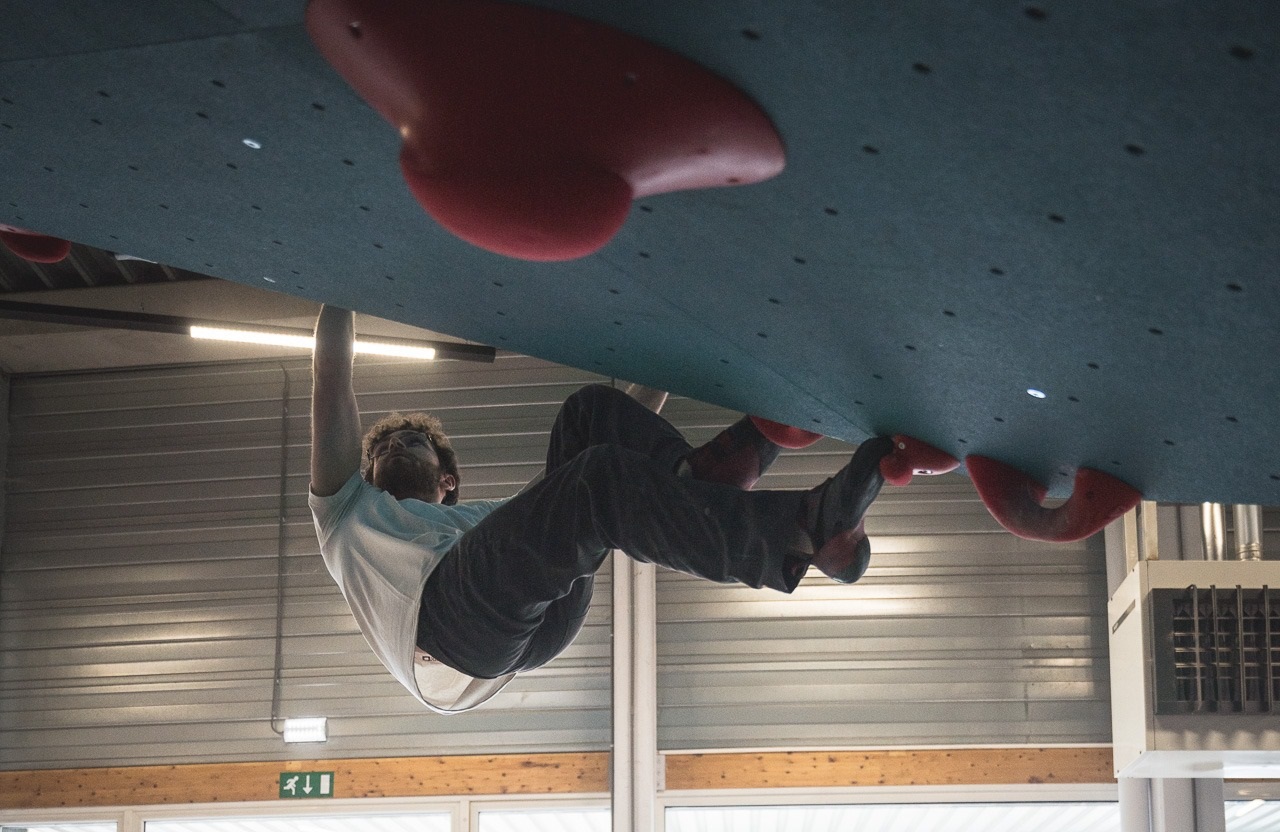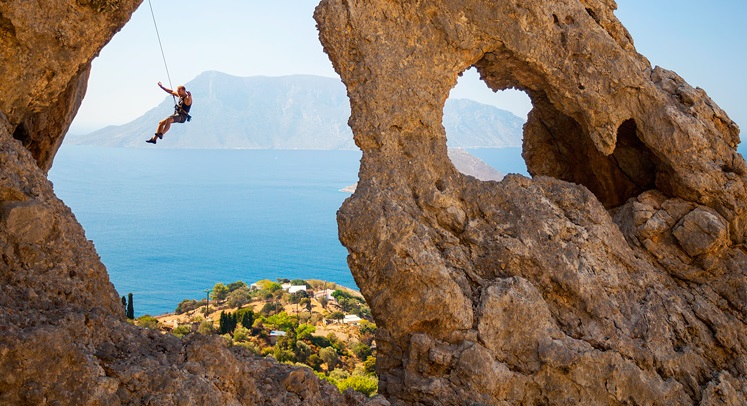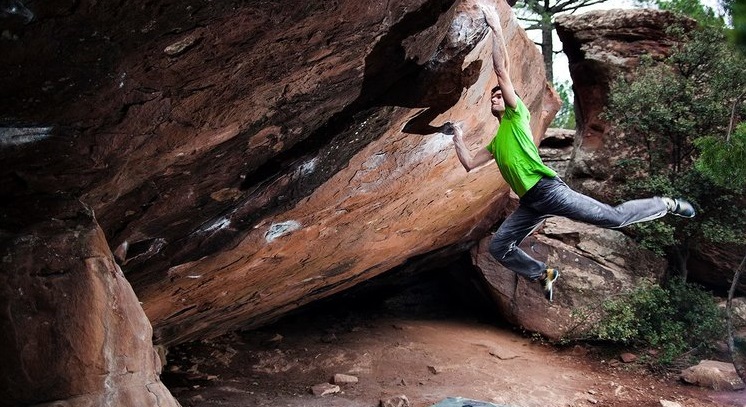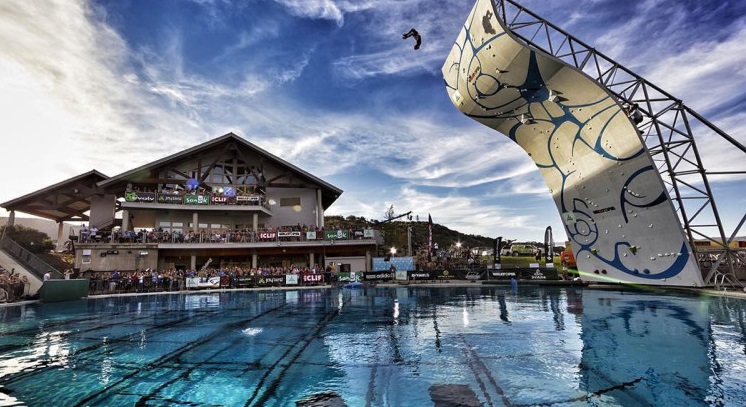Rock climbing

My biggest hobby, and it's safe to say you can call it a passion, is rock climbing.
To me, rock climbing is the perfect hobby to complement a desk job, especially one that involves programming or other problem solving tasks.
The reason for this is twofold. Firstly you have the physical aspect. Sitting in front of a desk all day long can easily cause bad posture. Rock climbing is by it's very nature a very physical sport. The training your body undergoes simply by having fun climbing around is perfect to keep your body in shape, while also promoting good posture.
The second aspect is the mental game. Deskjobs can be stressing, we've all experienced it. Rock climbing is perfect to clear your mind. A big part of climbing is problem solving. You have a puzzle you need to solve, and the pieces you have are the holds and your body. Add the technical aspect of climbing to the mix, and it's clear why you are forced to focus only on your climb and have no time to think about anything else. Training your problem solving skills in a different way than you usually do at work is also a nice bonus.
Climbing disciplines



Climbing, like many other sports, exists in many different forms.
The main two disciplines are lead climbing and bouldering. I like to draw an analogy between these, and running a marathon and sprinting.
Lead climbing is like running a marathon. You're in it for the long run and the key is to dose your strenght to make sure you don't burn out before you make it to the top. Lead climbing involves starting at the bottom with your rope, and attaching the rope to anchor points as you climb up. Heights can vary from anything between 10 meters (or lower), to massive multipitch routes of over 100 meters.
Bouldering is like running a sprint. The climbs are a lot shorter than lead climbs, with an average height of 4-5 meters or lower. It's all about doing as many difficult moves in a row as you can. Strenght and power are the name of the game here (which doesn't mean that technique isn't important, it is.). Because of it's low height and more acrobatic nature, bouldering is done without a rope. Instead you rely on heavy duty crashpads to break your fall when you ineviably come down.
Bouldering is also the more accessible of the two to get started. Due to the lack of gear and partner needed, you can just walk into a climbing gym and get started. Climbing shoes are adviced, but not mandatory your first few climbs and can be rented in most gyms.
Some other, less common, climbing discplines are:
- Trad climbing: like lead climbing, but instead of the anchor points being prebolted like they are for lead, you carry them up with you and jam them in crevices yourself. The climbs are often of a lower level than lead to compensate for the higher risk of a bad fall.
- Deep-water soloing / psicobloc: Climbing without a rope above water. It is comparable to bouldering, but often higher and more in the range of lower lead climbing height.
- Speed climbing: Speed climbing,as the name implies, is all about getting to the top as fast as possible. Speed climbing is done on a universal route that needs to be consistent in overhang, holds, ... across the world.
To close things off, here is a(n overly dramatic) short video showcasing a few different styles!